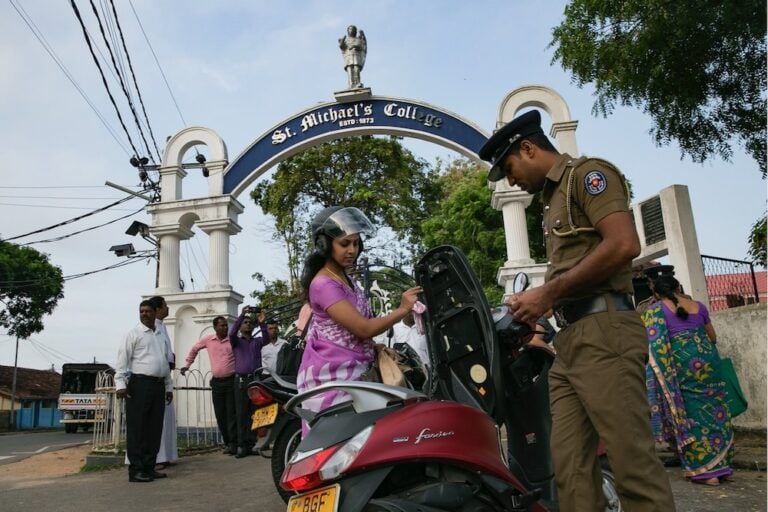(FMM/IFEX) – The following is an 18 December 2003 FMM press release: Presidential Task Force on Media Freedom On 16 December 2003, the President of Sri Lanka appointed a task force on media freedom. The task force includes academics, politicians and a few print media journalists, but does not include any women or electronic media […]
(FMM/IFEX) – The following is an 18 December 2003 FMM press release:
Presidential Task Force on Media Freedom
On 16 December 2003, the President of Sri Lanka appointed a task force on media freedom. The task force includes academics, politicians and a few print media journalists, but does not include any women or electronic media workers. The selection process has not been transparent, democratic or representative.
FMM considers the appointment of the presidential task force on media freedom to be a step taken in haste as part of a power struggle between the President, who belongs to one party, and the Prime Minister, who belongs to the other main party. The appointment of the presidential task force is another example of media freedom being used for political manoeuvring, rather than being based on a genuine desire to strengthen democracy in the country.
In order to have political legitimacy, the task force should have been appointed through a consultative process involving all stakeholders, including journalists, editors and media owners. Instead, the task force was appointed by the President, who not only controls the state media but also uses it as a propaganda tool for her own politically motivated ends, similar to all other political leaders who have governed the country.
FMM is surprised that in the mandate of the task force, there is no mention of state-owned electronic media being transformed into public service broadcasting institutions, free of political control. FMM believes that, if the President is genuine in her desire to promote media freedom in Sri Lanka, the main objective of the task force should be to immediately develop recommendations to transform these state-owned media outlets into public service broadcasting institutions.
Some clauses of the task force’s mandate are quite ambiguous, which could lead to censorship. For example, clause 8 comments on statutory safeguards by enforcement of sanctions in cases where the code of conduct is violated. Furthermore, it entrusts the task force to develop a code of conduct. FMM strongly objects to any government task force drawing up a code of conduct for the media. It is the task of media practitioners, and not government, to do so.
In addition, FMM is not impressed by the setting up of another committee when the President and her government have failed to implement a single recommendation of four committees her government appointed in 1995 to create a culture of free media in Sri Lanka. If the President is genuinely concerned about establishing a free media culture in the country, there is no need to appoint another committee or task force to perform the same task. Instead, the President could immediately implement the recommendations of the previous four committees.
FMM urges the President and Prime Minister to work together to initiate a consultative and consensus building process to protect and expand media freedom in a socially responsible manner, instead of using media freedom as a political tool in their power struggle.
Sunanda Deshapriya
Spokesperson,
FMM


